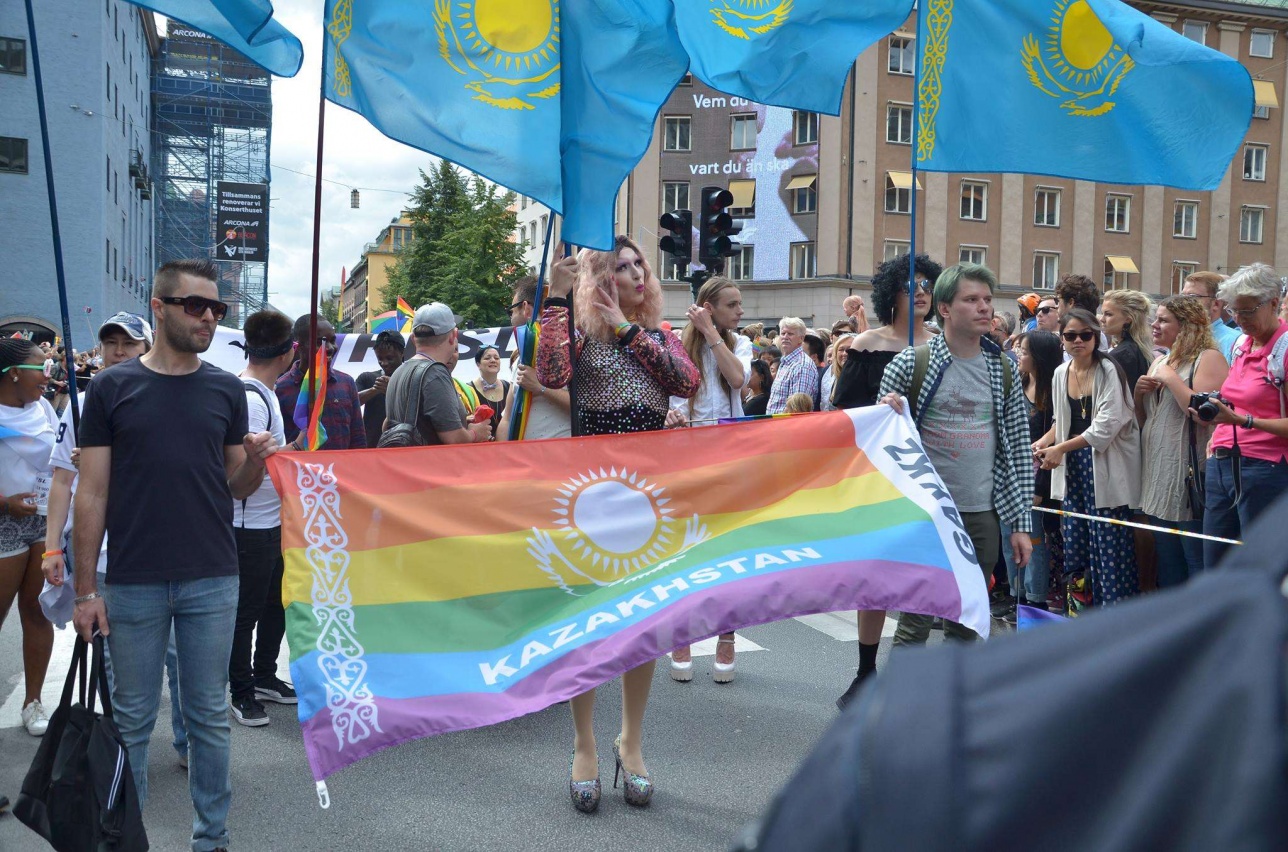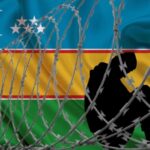Although the Kazakh government promotes religious tolerance at the international level, its restrictive 2011 religion law bans unregistered religious activity and has been enforced through police raids, detentions, and major fines. The law’s onerous registration requirements have led to a sharp drop in the number of registered religious groups, both Muslim and Protestant.
Religious freedom conditions in
Background
Religious Freedom Conditions
2011 Religion Law: The 2011 religion law set complex registration requirements, banned unregistered religious activity, restricted activities of registered groups, and raised penalties for violations. Regional and local religious organizations can only be active in areas of registration. Central and local government permits are needed to build or open new places of worship. Distribution of religious materials is only allowed in places of worship and officially-approved sites. Registered religious groups may teach their faith to their members, but regional and national registered religious groups can only train clergy in officially-approved institutions. Praying and prayer rooms are not allowed in government buildings. Missionaries must be invited by a registered religious community, limit activities to areas of registration, and have an official annual permit. The religion law restricts children’s participation in religious activities if a parent or guardian objects.
Other Legal Restrictions: The amended Law on the Rights of the Child also limits their religious activity. The administrative code provides for 3-month suspension of groups that hold illegal meetings, disseminate unregistered religious materials, or build worship houses without permits. A suspended group is banned from media contacts, meetings, and financial transactions. If a religious organization engages in illegal activities or fails to correct violations that led to its suspension, the organization is banned. The Administrative Code also sets massive fines for religion law violations. New criminal penalties restricting religious freedom are included in the draft Criminal Code released in early 2013 which parliament will likely adopt in late 2013.
Registration Issues: Under the 2011 law, all religious organizations were required to re-register by October 2012 with the central and local governments or face court liquidation. A local religious organization must prove at least 50 members. Unless registered as regional or national organizations with at least 500 members in each of two regions, they can only be active in areas of registration. National registration requires 5,000 members in every region. The registration statute must include data on religious views and types of activity. By October 2012 the number of registered religious organizations fell from 46 to 17 and of registered faith-based civic groups fell from 4,551 to 3,088. Of 666 registered Protestant religious associations, 462 were re-registered and the other 204 “will be liquidated;” of 48 “non-traditional” religious groups only 16 were registered. Catholic communities were exempt because of an agreement with the Holy See. After the deadline, courts ordered the
closure of some religious groups in rulings deemed arbitrary by observers. As of late 2012, only those Muslim communities affiliated with the state-backed Muslim Board were registered. Shia Muslim communities were denied legal status, as were all Ahmadi Muslims and mosques whose attendees mainly are of one ethnic minority.
Police Raids, Fines, and other Penalties for Religious Activity: Kazakh human rights activist Vadim Kuramshin was arrested in late 2012 after he criticized the Kazakh record on torture at an OSCE meeting and received a 12-year jail term. Before the re-registration deadline, raids continued on registered religious groups and on unregistered Baptist Council of Churches. Two
Extremism Law Issues:
Official Intolerance of Disfavored Groups: The 2011 religion law declares all religious communities equal under the law, but its preamble “recognizes the historical role of Hanafi Islam and Orthodox Christianity.” While lacking legal status, the preamble signals that some religions officially are viewed as more equal than others. The government also supports “anti-sect centers” that promote intolerance against certain religious communities.
Increased Government Control of Muslims: The Muslim Board is closely tied to the Kazakh government and influences mosque construction, exams and background checks for aspiring imams, and coordinating hajj travel. It reportedly pressures nonaligned imams and congregations to join or face the closure of their mosques. Reportedly, all mosques that join the Muslim Board must transfer one third of their income to it. Official surveillance of all religious communities continued. By 2012, increased official surveillance of observant Muslims had fueled popular resentment and official discrimination in
Treatment of Asylum Seekers: In June 2012, the UN Committee Against Torture (CAT) ruled that
Restrictions on Religious Materials: The new religion law’s censorship regulations for religious literature went into effect in 2012. By May, only 182 Muslim religious texts had passed the required official examination. It is unknown how many religious texts await review or how many had been banned. The numbers of bookshops allowed to sell religious material is restricted and only Hanafi Sunni Muslim texts can be sold. By 2013, Kazakh local authorities and police were strictly enforcing the expanded censorship regulations through raids and fines.
Recommendations for
In order to promote freedom of religion or belief in
Press the Kazakh government to allow unregistered religious groups to operate freely until amendments to the 2011 Religion Law’s registration process make it voluntary;
Urge the Kazakh government to cease police raids of religious meetings, and the issuance of fines, property confiscation, detentions and imprisonment of members and religious leaders;
Encourage President Nazarbaev to speak publicly about respect for religious freedom for all Kazakhstanis and to include minority religious communities in the Congress of World and Traditional Religions held biannually in the capital Astana;
Encourage public scrutiny of Kazakhstan’s record on religious freedom and related human rights in appropriate international fora, such as the UN, OSCE and other multilateral venues, especially in cases of prosecution of Kazakh citizens for comments at such fora;
Urge the Kazakh government to agree to visits by UN Special Rapporteurs on Freedom of Religion or Belief, the
Ensure that the U.S. Embassy in Kazakhstan maintains active contacts with Kazakh human rights activists and press the Kazakh government to adopt policies to ensure that every prisoner has greater access to his or her family, human rights monitors, adequate medical care, and a lawyer, as specified in international human rights instruments;
Specify freedom of religion as a grants category and area of activity in the Democracy and Conflict Mitigation program of the U.S. Agency for International Development and the Democracy Commission Small Grants program administered by the U.S. Embassy, and encourage the publicly-funded National Endowment for Democracy to make grants for civil society programs on tolerance and freedom of religion or belief; and
Increase radio, Internet, and broadcasting, particularly in the Kazakh language, of objective news and information on relevant issues, including specific religious freedom concerns in the country and explaining why religious freedom is an important element of
You can download report in PDF format HERE

















